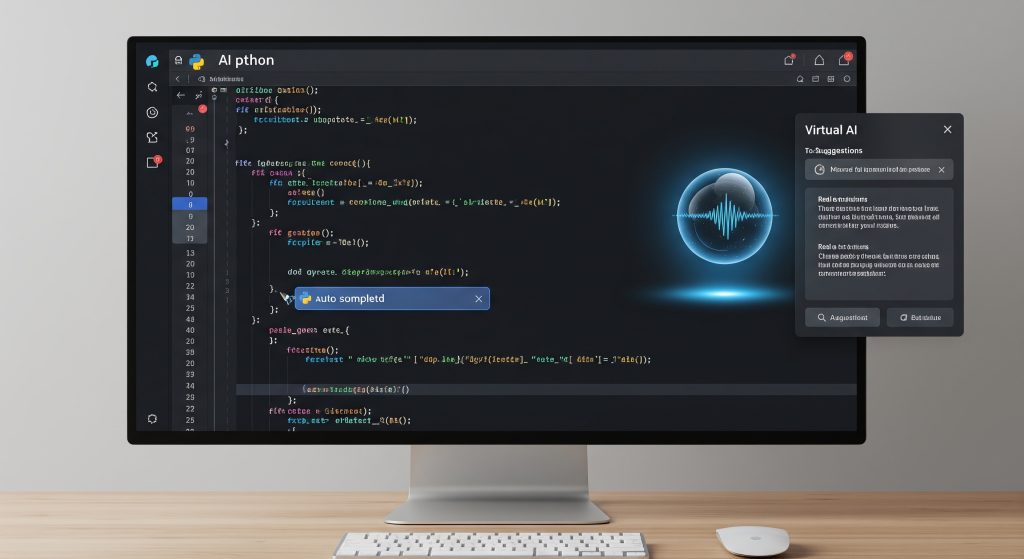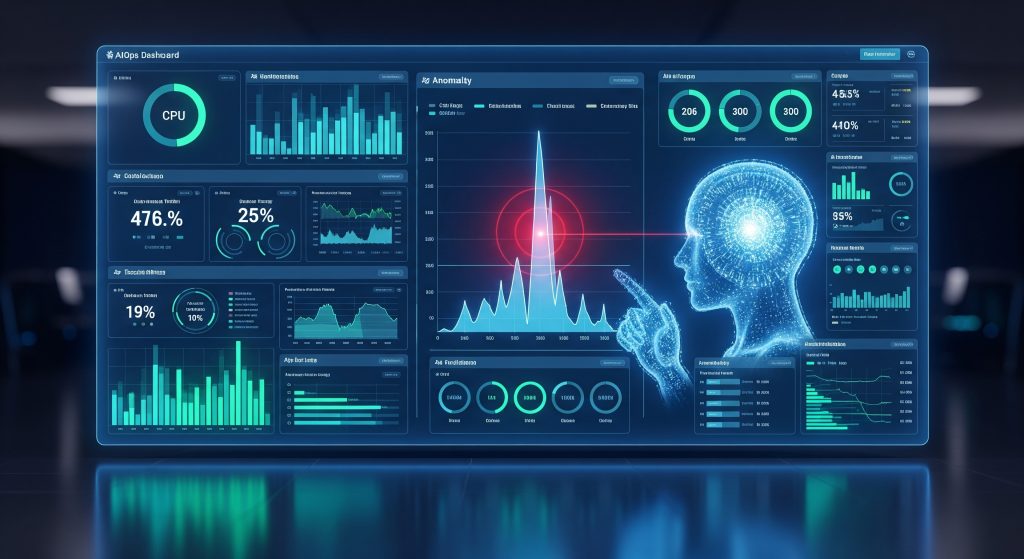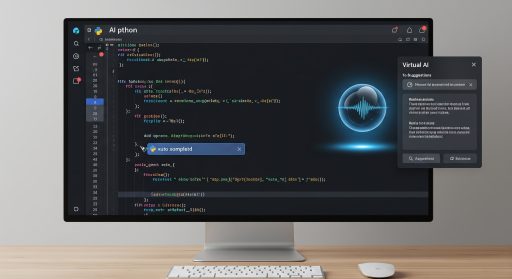Imagine cutting your software development time nearly in half without sacrificing quality. Global tech leaders are turning this into reality by integrating AI into their software development lifecycle (SDLC). The pressure to deliver products faster – amid tight tech talent markets and relentless competition – has paved the way for AI-augmented development. AI coding assistants like GitHub Copilot have exploded in popularity, now boasting over 15 million users worldwide, a 4× year-over-year increase. 90% of Fortune 100 companies are already using AI coding tools like Copilot. These tools act as “AI pair programmers,” autocompleting code and suggesting functions, which can dramatically speed up routine coding tasks. But beyond just coding, AI is infiltrating testing, DevOps, and every phase of the SDLC – promising faster delivery from concept to deployment.
Why now? Recent advances in generative AI (like OpenAI’s GPT models) enable tools that can generate code, write test cases, and even manage aspects of deployment. Business leaders are taking note: a majority of developers (76%) are using or planning to use AI in their workflow, and surveys show 81% of developers cite productivity gains as the top benefit of AI coding tools. The initial hype around AI might be settling, but what’s emerging is a practical path for CTOs and product leaders to integrate AI thoughtfully to accelerate development. In this article, we’ll explore how AI tools are impacting each stage of software development, what integration strategies work best, and a case study of AI-augmented development in action – all drawn from the latest industry research and DigiEx Group’s hands-on experience in AI-powered projects.
The Rise of AI-Augmented Development
Not long ago, the idea of an AI writing substantial portions of code seemed futuristic. Today, it’s a strategic reality. Microsoft’s CEO Satya Nadella recently revealed that over 30% of code in Microsoft’s own code repos is now written by AI assistants. And it’s not just Microsoft’s engineers – companies like Twilio, Cisco, HPE, SkyScanner, and Target have equipped their developers with AI copilots throughout the dev lifecycle. This surge is part of a broader trend: generative AI is being embedded across software development, from planning to coding to testing. Deloitte’s 2024 global study found that over one-third of surveyed organizations have moved from mere experimentation to at-scale implementations of generative AI in products. The direction is clear – by 2027, nearly every company’s digital footprint will somehow incorporate generative AI, whether through AI-augmented team members or AI-driven platform features.

What’s driving this adoption? In practical terms, AI developer tools address two perennial challenges: the need for speed and the shortage of skilled talent. AI-powered code generators (like Copilot, Amazon CodeWhisperer, and others) can handle boilerplate and repetitive coding tasks in seconds, tasks that might occupy human developers for hours. This frees human engineers to focus on higher-level architecture and critical logic. According to McKinsey, developers were able to complete certain coding tasks up to 2× faster using generative AI assistants. Common activities like writing new boilerplate code or documenting functions can be done in half the time or better with AI support. It’s no wonder enterprise adoption is soaring – these tools are not just nice-to-have, they’re becoming essential competitive levers. As one McKinsey report notes, with the right upskilling and process changes, AI-driven productivity gains “outperform past advances in engineering productivity”. In short, AI-augmented development is moving from buzzword to baseline for high-performing tech organizations.
Boosting Productivity with AI Tools
AI is making its mark at every stage of the software development lifecycle. Let’s break down how AI tools are accelerating three key parts of the SDLC: coding, testing, and operations (DevOps), and what that means for development teams.
AI in Coding & Implementation: Your AI Pair Programmer
For developers, writing code is as much about routine as it is about creativity. A lot of coding involves writing standard patterns, boilerplate code, or revisiting similar logic – this is precisely where AI shines. Modern AI pair-programming assistants (e.g., GitHub Copilot, Amazon CodeWhisperer, Tabnine) use generative AI to suggest code as you type, auto-complete functions, and even generate whole blocks based on a comment or prompt. The result? A significant boost in productivity for common programming tasks. Empirical studies by McKinsey found that documenting code and writing straightforward functions can be done in 50% of the usual time with AI assistance, and even complex code integration or refactoring is about one-third faster. Developers using AI report that it helps “jump-start the first draft” of new code, sparing them from the dreaded blank screen. Instead of starting from scratch, engineers can prompt the AI for an initial implementation and then refine it – much like a senior engineer giving you a rough outline to build on.
AI in Testing & QA: Ensuring Quality at High Velocity
Speeding up coding is only half the battle – if testing and quality assurance can’t keep up, your release gets bottlenecked. This is where AI is proving to be a game-changer in QA. AI-driven testing tools can generate unit tests, find patterns in bug reports, and even decide which tests are most relevant to run on each code change. A compelling example comes from Google’s internal engineering: Google implemented an AI-powered “Smart Test Selection” system to optimize its CI/CD pipeline, using machine learning to predict which tests are needed for a given change. The impact was huge – Google cut overall test execution time by 50% by running only the most relevant tests, vastly accelerating their feedback loops in continuous integration. And importantly, this smart testing approach didn’t miss bugs; defect detection rates stayed as good as running the full test suite. This shows how AI can maintain quality and speed, rather than trading one for the other.
AI in DevOps & Maintenance: Smarter Operations and Deployment
The influence of AI doesn’t stop once the code is written and tested; it’s increasingly present in deployment, monitoring, and maintenance – the realm of DevOps and IT operations. AIOps (AI for IT Operations) is a growing trend where machine learning algorithms help manage the complexity of modern cloud-native systems. In practice, this means AI systems can monitor your logs and metrics to detect anomalies (like a spike in error rates or unusual latency) faster than a human might. Early detection allows teams to react to incidents before they escalate or even trigger automated mitigations. For example, AI-driven monitoring tools have been shown to proactively catch issues that, if left unnoticed, could cause downtime – some organizations report reducing system downtime by 40% or more by using AI to predict and prevent failures. In continuous deployment pipelines, AI can decide whether to rollback or push forward with a release by analyzing success metrics in real time, essentially automating the “guardrails” that an on-call engineer would check.

Integration Strategies for AI-Powered Development
Adopting AI tools across coding, testing, and operations isn’t as simple as flipping a switch. It requires a thoughtful integration strategy. Here are key strategies for CTOs and tech leaders to successfully weave AI into the development process:
- Start with High-Impact Use Cases: Identify parts of your SDLC that are most ripe for AI augmentation. Good candidates are repetitive, time-consuming tasks – for example, writing boilerplate code, generating documentation, running exhaustive test suites, or monitoring thousands of log lines. By starting where AI can show quick wins (such as automating unit test generation or handling routine coding tasks), you build momentum and buy-in.
- Upskill Your Team and Adjust Roles: Embracing AI in development is as much a people challenge as a tech challenge. Training developers and QA staff to effectively use AI tools is crucial. This might involve workshops on how to write good prompts for code generation, or how to interpret and verify AI-generated suggestions. According to industry reports, about 67% of organizations believe they need to hire or upskill talent in AI skills to fully leverage these tools.
- Implement Robust Validation & Testing for AI Outputs: AI suggestions are not infallible – they can introduce bugs or insecure code if taken at face value. To integrate AI safely, put strong validation steps in place. This means code review is more important than ever.
- Address Security and IP Concerns: With AI tools, especially cloud-based ones, your code might be leaving your environment for analysis. Integrating AI requires policies for data and IP protection. Consult with your legal and security teams to understand the terms of any AI coding tool – does it store snippets of your code on their servers? Who owns the generated code? Solutions can include using on-premises or self-hosted AI models for sensitive codebases, or anonymizing data that gets sent to an AI service.
- Foster Cross-Functional Collaboration: AI in development doesn’t just affect developers – it touches QA, security, product management, and more. It pays to involve a cross-functional team when rolling out AI integrations. Nearly half of organizations have increased cross-functional collaboration to manage AI outputs and improve results.
Adopting AI in software development is a journey. Start small, learn and adapt your processes, and scale up as your team gains confidence. With the above strategies, organizations can avoid the pitfalls (like blind trust in AI or skill atrophy) and instead create a symbiotic workflow where AI accelerates delivery but humans still steer the ship.
Conclusion: Embracing AI for Faster, Smarter Delivery
Software development is entering a new era where speed and agility are amplified by AI. As we have seen, AI-augmented development isn’t about handing the keys to a robot coder – it’s about pairing the efficiency of AI with the creativity and judgment of seasoned engineers. When coding, testing, and operations are each accelerated by intelligent tools, the cumulative effect is transformative: faster release cycles, higher developer productivity, and more time for teams to focus on innovation over drudgery. Importantly, success with these tools requires strategy – the right integration approach, upskilling your talent, and maintaining strong oversight and quality checks. The organizations that get this right are already reaping the rewards (faster time-to-market, cost savings, and the ability to scale development without linear headcount growth), while those that ignore the trend risk falling behind in productivity.
Our team at DigiEx Group witnessed first-hand how AI-powered software development can elevate a project’s outcome. With over 20 years of global IT experience, we’ve evolved our processes to harness AI’s benefits – from employing AI pair programmers in our dedicated development teams to using machine learning for QA and maintenance. The result for our clients is accelerated delivery timelines with confidence in quality.
Ready to accelerate? Whether you are a CTO looking to boost an enterprise dev team or a startup founder aiming to do more with a lean team, AI augmentation might be the key to your next leap in productivity. The journey involves change, but you don’t have to navigate it alone. With a thoughtful approach and the right partner, integrating AI into your software development lifecycle can transform your delivery capability. If you’re curious how AI tools could fit into your development strategy, DigiEx Group is here to help – blending AI innovation with human expertise to drive your software ambitions forward.
About DigiEx Group
DigiEx Group is a leading Tech Talent Hub and AI-driven Software Development company in Vietnam, backed by over 20 years of global IT experience. Our team, with 2 Tech Development Centers, 150 in-house engineers, and a network of 50+ domain experts, tailors every engagement to your unique roadmap with a suite of services:
- Tech Talent Services: Rapid access to Vietnam’s top 2,000+ pre-vetted engineers via our Talent Hub platform.
- Custom Software Development: End-to-end product delivery for web, mobile, SaaS, and enterprise systems.
- AI Consulting & Development: Design and implementation of AI Agents and automation solutions.
- Neobank & Fintech Solutions: Cutting-edge digital banking and payment platforms.





